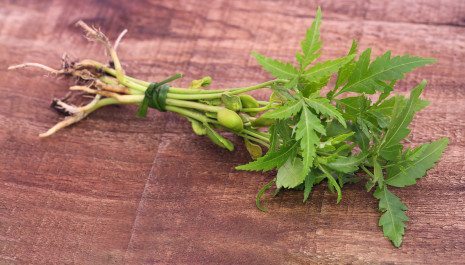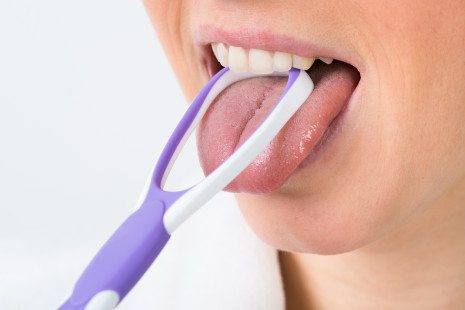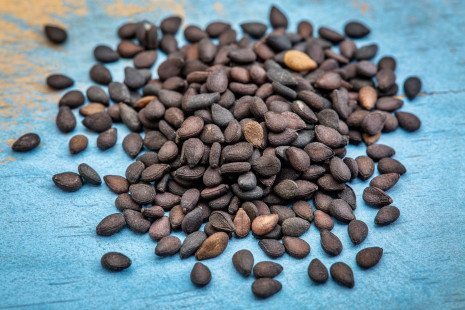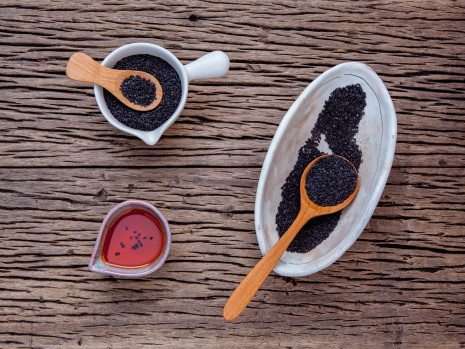Over the last year, I have been sharing some of my studies during my Ayurvedic doctoral program. One thing I shared on a previous podcast was the topic of oil pulling. Since that podcast post, I have received many questions from you about wanting to know more about a full Ayurvedic oral care routine.
You have inspired me to want to share more about this topic, so I will be telling you about some aspects of dinacharya, which is known as a daily routine and preventative care. I love that Ayurveda puts such a vast emphasis on preventative care- which is largely lacking in Western medicine, unfortunately. Anyways, I took a whole class dedicated to this very topic last semester, and the oral care section was pretty substantial!
Did you know that oral health is extremely important to our overall health?
In order to cleanse toxicity out of our mouth, which can create stagnation and Ama (or toxicity) buildup, it is best to incorporate bitter, astringent, and pungent tastes.
Here are 5 important ways aspects to add into an oral care routine…
Neem
For thousands of years, the mighty neem tree, a plant native to India and Southeast Asia, has been known for its oral care support and dental hygiene. The neem leaf and bark contain valuable constituents that make this plant an ideal choice for teeth and gum health.
Neem has also been recognized for its anti-bacterial properties. Dental plaque is a sticky residue of bacteria, acid, and food particles that can irritate your gums and eat away at tooth enamel. The neem leaf and bark can assist in reducing the bacteria that causes plaque.
While it might be hard to source pure neem, which was traditionally used thousands of years ago, look for natural toothpastes that incorporate neem at your health food store. That way you can still incorporate the taste profile and essence of this plant, and get some of the benefits.
Tongue Scraping
Another component of oral care in Ayurveda is tongue scraping. Scraping the tongue daily removes any build-up on the tongue, which, if left untreated, can lead to bad breath and may house a significant number of bacteria. This simple practice is a direct way of removing Ama from your physiology. In Ayurveda, Ama refers to any accumulation of toxic residue in the mind-body.
The ancient Ayurvedic recommendation of tongue scraping is one that is often overlooked. There are many benefits to this daily practice as far as oral health, and overall physical, mental, and spiritual health. You can order a tongue scraper online and get started asap! :)
Black Sesame Seeds
Another Ayurvedic daily oral care practice is to chew black sesame seeds, which is believed to help polish the teeth and to help remove stains. You can look for black sesame seeds at your health store. Please note this is a practice that used with the black seeds and not the white seeds due to their mineral content of phosphorus, etc. which make them black and are believed to help with this stain-removing quality. Especially if you are eating teeth-staining turmeric!
Oil Pulling
I have touched on this topic a little as it has become more popular and mainstream. This may be the most well-known of the tips I am giving you today, but keep in mind that all of the oral care routine is important. Traditionally, oil pulling can be done with a little bit of heated sesame oil or coconut oil. Move 1-2 tsp. into a small container and simply heat with hot running water, so as not to keep heating your entire bottle over and over again.
Swish the gently heated oil around your mouth and gums quite vigorously. This is believed to help “pull” bacteria, parasites and other toxins from your teeth, gums and mucus membranes. It’s also believed to help stimulate the health of various organs throughout your body, and also the vagus nerve, which is related to digestion.
Many people think you need to oil pull for a long time ,but both of my Ayurvedic teachers, long-time, respected Ayurvedic physicians, have shared with me that it is traditionally done for only 2-3 minutes, or even up to 5 minutes. You don’t need to do it for 15-20 minutes, as some recommend in modern times. You also want to make sure you do not swallow the oil. Oil pulling is also a part of the dinacharya part of the oral practices.
Rinse Your Mouth Out
The last tip I will share with you today is simple. It is advised to rinse your mouth out before and after every meal even if you are not able to do a full brush. You can do this when you are out and about- even discreetly in public restaurant bathrooms! This step is also geared towards cleansing and preventing ama buildup regularly from just eating regular meals.
***
So there you have it! These are just a few of the dinacharya oral care practices. I hope this information was interesting to you. Let me know how your new oral care routine is going and be sure to check out neem, tongue scrapers, black sesame seeds and oil pulling. :-)
Love,
Kimberly







Hey Kimberly Snyder!!
Thank you for sharing such good ways to naturally do oral care.. Personally, i am used to Tongue Scraping and rinsing my mouth out before and after every meal.. Now got other ways!!!
That’s wonderful Rashid and so happy to hear you are taking care of your oral health. Let us all know what tips you liked the best. Lots of love to you! ;)